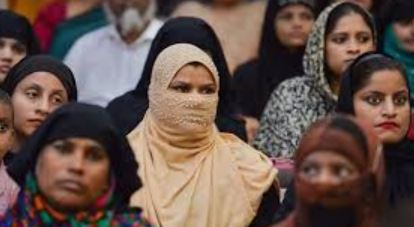In a landmark judgment on July 10th, the Supreme Court of India unequivocally affirmed the right of Muslim women to seek maintenance from their spouses under Section 125 of the Code of Criminal Procedure (CrPC). This ruling, applicable to all married women regardless of their religious affiliation, signifies a monumental victory for gender equality and financial security within the Indian legal framework.
Landmark Ruling for Financial Security
A bench comprising Justices B.V. Nagarathna and Augustine George Masih delivered separate yet concurring verdicts, solidifying the interpretation that Section 125 of the CrPC, which addresses the legal entitlement of wives to maintenance, encompasses Muslim women as well. Justice Nagarathna emphatically stated, “We are hereby dismissing the criminal appeal with the major conclusion that Section 125 would be applicable to all women and not just married women.”
Maintenance: A Right, Not Charity
This ruling explicitly refutes the notion that maintenance is a form of charity, instead asserting it as an inviolable right for all married women. It underscores the court’s commitment to ensuring financial security for women, particularly in the aftermath of divorce, irrespective of religious considerations.
CrPC Supersedes Religious Laws
The Supreme Court’s decision also nullifies the argument that divorced Muslim women are exclusively bound by the provisions of the Muslim Women (Protection of Rights on Divorce) Act, 1986. The court unequivocally declared that the secular and gender-neutral provisions of the CrPC supersede any conflicting religious laws.
A Case for Justice and Equality
The apex court’s judgment was delivered in response to a petition filed by Mohd. Abdul Samad, who contested a Telangana High Court order upholding a family court’s maintenance order. Samad’s contention that divorced Muslim women should solely rely on the Muslim Women (Protection of Rights on Divorce) Act was decisively rejected by the Supreme Court.
This momentous ruling serves as a powerful testament to the judiciary’s dedication to safeguarding the rights of women and ensuring a just and equitable society for all. It is a resounding affirmation that financial security and legal protection are not contingent upon religious affiliation but are fundamental rights for every Indian woman.
Soumya Smruti Sahoo is a seasoned journalist with extensive experience in both international and Indian news writing. With a sharp analytical mind and a dedication to uncovering the truth, Soumya has built a reputation for delivering in-depth, well-researched articles that provide readers with a clear understanding of complex global and domestic issues. Her work reflects a deep commitment to journalistic integrity, making her a trusted source for accurate and insightful news coverage.



